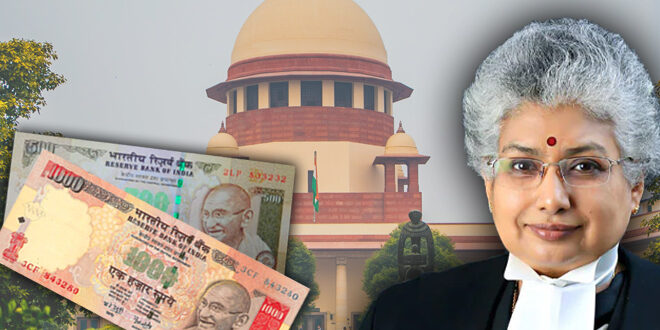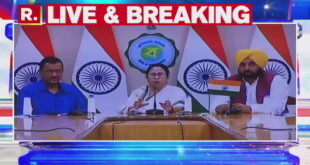Justice BV Nagarathna expressed her disagreement today after a Supreme Court Constitution bench upheld the Narendra Modi-led Centre’s decision to implement demonetization with a 4:1 majority. She referred to the Centre’s November 8, 2016, notification as “unlawful” and agreed with the petitioners who were contesting it that, following section 26 of the Reserve Bank of India Act, the RBI’s central board should have independently recommended demonetization rather than doing so on the advice of the government. She insisted that the RBI had not applied its mind independently.
“In my view, the action of demonetization by November 8 notification was unlawful. But status quo ante cannot be restored now since it was in 2016,” she said, adding that demonetization was “an exercise of power, contrary to law, and therefore unlawful.”
She added that she is not questioning the “noble objectives” of the exercise itself but only the legal perspective, saying that the way it was carried out was not legal.
“Demonetisation was, beyond a pale of doubt, well-intentioned. Best intentions and noble objects are not under question. The measure has been regarded as unlawful only on a purely legal analysis, and not on the objects of demonetization,” she said, further calling the decision “well-intentioned and well thought of.” She added that it targeted evils such as black money, terror funding, and counterfeiting.
According to the RBI Act, the Reserve Bank of India board should recommend demonetization. Still, in this instance, the Centre wrote a letter to RBI on November 7 advising for such a recommendation, she said.
Additionally, Justice Nagarathna upheld that rather than an executive notification, a Parliamentary Act could have been used to start the demonetization process, as it had in the past.
 India One News
India One News





